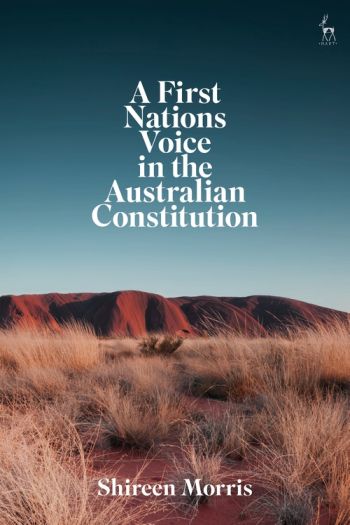
This book makes the legal and political case for Indigenous constitutional recognition through a constitutionally guaranteed First Nations voice, as advocated by the historic Uluru Statement from the Heart. It argues that a constitutional amendment to empower Indigenous peoples with a fairer say in laws and policies made about them and their rights, is both constitutionally congruent and politically achievable. A First Nations voice is deeply in keeping with the culture, design and philosophy of Australia's federal Constitution, as well as the long history of Indigenous advocacy for greater empowerment and self-determination in their affairs. Morris explores the historical, political, theoretical and international contexts underpinning the contemporary debate, before delving into the constitutional detail to craft a compelling case for change.